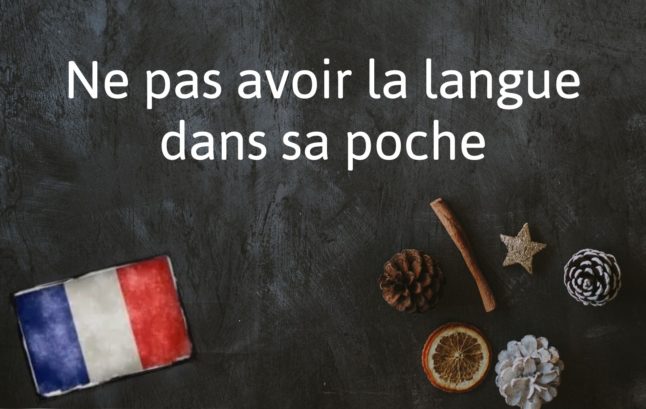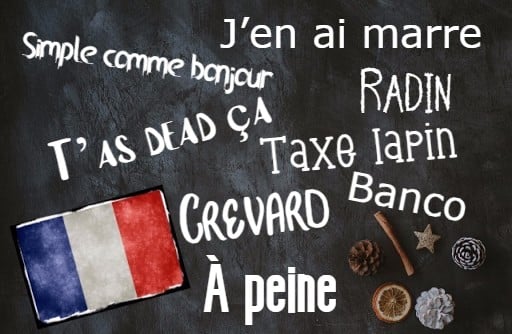Why do I need to know ne pas avoir la langue dans sa poche?
Because depending on your sensitivity level, you would either seek out this type of person or try to stay far away from them.
What does it mean?
Ne pas avoir la langue dans sa poche – roughly pronounced nuh pahz ah-vwar lah lahng dahn sah poe-sh – translates precisely as ‘to not have the tongue in the pocket’.
This is an old French expression, dating back to the 19th century, and it does not have anything to do with literal tongues in pockets.
It refers to someone who speaks freely and without any restraint. In English one might say that ‘they do not hold back’ or perhaps ‘calls a spade a spade’ – it means someone who is blunt and says exactly what they are thinking, regardless of whether it might offend or upset people.
A person qui n’a pas la langue dans sa poche might be borderline rude, or impulsive, as they speak without thinking.
While you are most likely to hear this in the negative sense (about a blunt person), you could also use it in the opposite way (avoir la langue dans sa poche) to describe someone who is guarded and speaks carefully.
There are a couple of similar French expressions, though they do not convey exactly the same meaning of speaking carelessly. One option is être un moulin à paroles (‘to be a mill with words’, or to speak a lot and quickly, without taking any pauses).
Another is une pipelette for someone who talks a lot and enjoys gossiping.
Use it like this
Ne t’inquiète pas, ma belle-mère n’a pas la langue dans sa poche. Elle dira exactement ce qu’elle pense. – Don’t worry, my mother in law does not hold back. She will say exactly what she is thinking.
Il n’a pas la langue dans sa poche. Il m’a dit carrément que ma robe était moche. – He is brutally honest. He told be outright that my dress was ugly.



 Please whitelist us to continue reading.
Please whitelist us to continue reading.
Member comments